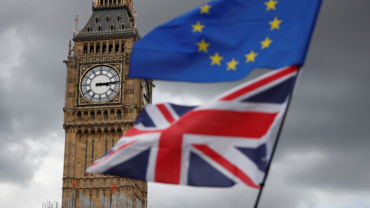Image Credit: REUTERS/Susana Vera
After four-and-a-half years of legal and political wrangling, fraught negotiations and business uncertainty, the United Kingdom (UK) reached agreement with the European Union (EU) on their future relationship. The future relationship agreements have been signed, Parliament passed implementing legislation on 30 December 2020, and the agreements now apply provisionally.
The agreements came in the nick of time—just before the transition period ended on 31 December 2020 – and so averted a ‘no-deal’ scenario, which risked plunging the UK and EU into economic chaos and causing major disruption to business.
To learn more, read the Special Report ‘Beyond Brexit: Navigating a new beginning’.
In Future UK-EU relationship: the end of the beginning, published in the January/February 2021 edition of PLC Magazine, Joanna Morris and Anne O’Connor of Practical Law Brexit take a look at what was agreed between the UK and the EU, what wasn’t agreed, and what to expect in future. They note that the agreements reached by the UK and EU should be seen as a framework with scope for future negotiation.
Three agreements
In setting out its basic approach to the negotiations, the UK government’s original aim was for the UK and the EU to enter into a series of separate future relationship agreements, each with their own governance arrangements. The future relationship agreements that were signed comprise the following:
- UK-EU trade and co-operation agreement. This is the main agreement, covering economic and security co-operation, and has a single overarching governance framework.
- UK-EU security of information agreement. This supplements the main agreement and addresses security procedures for exchanging and protecting classified information.
- UK-Euratom nuclear co-operation agreement. This provides a framework for co-operation between Euratom and the UK in the peaceful uses of nuclear energy.
A framework: more negotiations to come?
The trade and co-operation agreement covers a wide range of issues in economic and security co-operation, has a single overarching governance framework, and includes trade in goods and in services, as well as many other areas and matters. However, as was expected there are many other areas not covered by these agreements and so should be seen as a framework for further negotiations. Indeed, the general provisions of the trade and co-operation agreement provide for a requirement for supplementing agreements. Areas for further negotiation include financial services and data transfers.
There are a number of regulatory areas where the UK and EU may diverge in the future, and these agreements provide the framework for that to happen. Given that the agreements contain a large degree of white space, there is great scope for divergence. As a result, law firms and corporate legal departments have a big task ahead of them post-transition. They must stay abreast of changes to retained EU law, the post-transition legal and regulatory landscape, the ways in which UK and EU laws diverge, and how courts interpret these changes.
Implementation and a look to the future
The agreements have been implemented into UK law by the European Union (Future Relationship) Act 2020 (FRA). Section 29(1) of the FRA provides for the general implementation, by a glossing mechanism, of provisions of the trade and co-operation agreement and the security of classified information agreement which are not implemented by any other mechanism.
Once again, this highlights the importance of lawyers and businesses understanding not only the changes that have taken place but the changes that are likely to happen in the future.
As Joanna Morris and Anne O’Connor note in their news brief, “the big question is whether the relationship will become wider, with more restrictions, or whether in fact the UK and EU could grow closer in the coming years”.
This new relationship coincides with other global and local events that surely point to a significantly changed regulatory and legislative landscape. The economic recovery from COVID-19 presents governments with an opportunity to put sustainability at the top of their agenda as they aim to achieve carbon reduction targets. The UK’s ‘levelling up’ agenda aimed at rebalancing an economy and addressing regional inequalities is also likely to bring regulatory changes, further legal complexity and uncertainty. Changes brought about by the UK’s new relationship with the EU may just be the start of things to come.
To learn more, read the Special Report ‘Beyond Brexit: Navigating a new beginning’.



